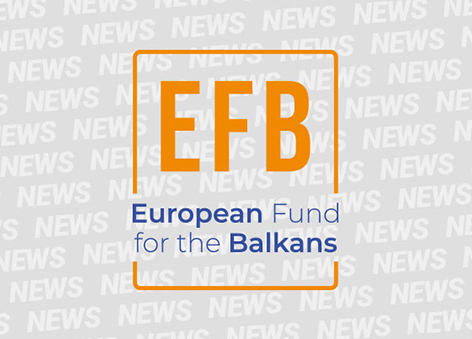
14.11.2014 All News
“European Integration of the Balkans – New Realities” was the title of a public discussion at “Marble Hall” of the Federal Ministry for Europe, Integration and Foreign Affairs in Vienna, Austria on the 29th of October. The event was organised by the European Fund for the Balkans, the Centre for Southeast European Studies of the University of Graz, Austria, and the ERSTE Foundation in partnership with the Austrian Federal Ministry for Europe Integration and Foreign Affairs. The discussion was moderated by Wieland Schneider, Deputy Head of the Foreign Desk of the Austrian daily newspaper Die Presse.
As Wieland Schneider stressed in his introduction, the European Union and its member countries must deal at the moment with many urgent issues regarding international politics; one of the most important of those is the crisis in Ukraine and, as a result, deteriorating relations with Russia. Of course the EU has to pay a lot of attention to Ukraine, because in this country there is a full-scale armed conflict underway, with tanks, with militias supported by an external player and with a large number of refugees. In some aspects, this conflict reminds us of the Wars in the Balkans in the 1990s and the beginning of the 21st century. The Wars in the Balkans have been over now for many years. But today the region still needs attention. An important ingredient of the asphalt on the road of peace was the enlargement policy of European Union, Mr. Schneider said. Slovenia has been a part of European Union for a long time now, and Croatia is a new member of EU. But what is the outlook for the other countries of the region? Serbia and Montenegro are on the way to joining the Union. But others, like Bosnia and Herzegovina, are left behind. So what are the scenarios and the risks, if the process does not get back on the track? And what can the European Union do, which is not just dealing with the crisis in Ukraine, but also with its internal economic crisis?
Doraja Eberle, Chairwoman of the Board of the ERSTE Foundation, opened the discussion by saying that she is concerned about the regional developments, especially mentioning the protests in Bosnia that happened at the beginning of 2014. Ms. Eberle pointed out that the civil society and informal groups in Bosnia and Herzegovina must be supported. Hedvig Morvai, Executive Director of the European Fund for the Balkans, took the floor next. She presented the work of the Balkans in Europe Policy Advisory Group by explaining its ambitions for the next phase and the goals of the group.
Florian Bieber, director of the Centre for Southeast European Studies, University of Graz, and the coordinator of the Balkans in Europe Policy Advisory Group, started his presentation with an overview of the current state of affairs regarding EU-Western Balkans relations. He stressed the importance of the EU enlargement process as a tool for the democratic consolidation of the countries of the region. Mr. Bieber highlighted the problems concerning the political landscape in Bosnia and Herzegovina and raised concerns about the freedom of the media in Serbia and about authoritarian tendencies in a number of the countries of the region. He then moved to the EU internal debates and stressed that the new Commission President’s message regarding further enlargement was not encouraging. Mr. Bieber presented four scenarios which were developed in the framework of the policy paper “The Unfulfilled Promise – Completing the EU Enlargement to the Balkans”. The following are possible scenarios that Mr. Bieber sees in regard to Balkan countries’ path towards joining the European Union
- Business as Usual: This approach might be insufficient to overcome the particular problems of some countries, for example, Macedonia’s dispute with Greece, the incomplete recognition of Kosovo, or the deadlock in Bosnia and Herzegovina.
- Alienation from the EU: Countries are giving up the goal of accession with potential negative consequences for consolidation of democracy, interethnic relations and long-term economic investment.
- Abandoning Enlargement and New Unpredictability in the Western Balkans: As accession becomes unlikely, alternative actors like Russia and Turkey might become engaged in the region.
- The Balkans Big Bang: Accession talks will be started with all the countries of the region, and they will be offered a single entry date.
- Keep the momentum of the enlargement process going. Avoid that the region splits into countries on the track to European Union and the “Restern Balkans”, countries that have no prospect of joining the EU soon.
- Focus on the difficult cases like Bosnia and Herzegovina or Macedonia.
- Change progress reports. Insert competition between the countries of the region to fulfill the criteria for accession.
- Pay greater attention to the state of democracy and freedom of the media in the countries of the region.






